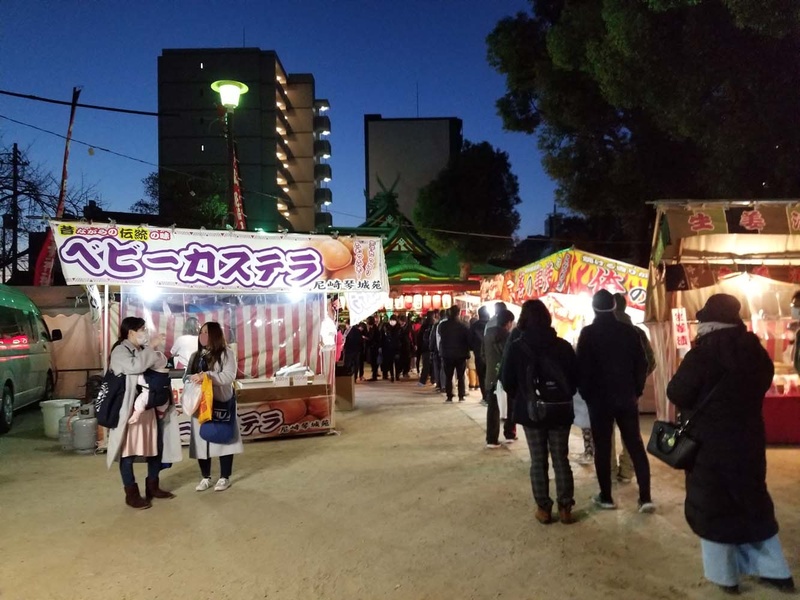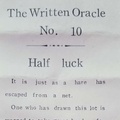As is customary in Japan and throughout the Japanese diaspora, many Nikkei Entrepreneurs pray for good fortune in business, success in life, and divine protection. From an Economic Anthropological perspective, praying allows entrepreneurs and business professionals to strengthen themselves from the worries surrounding economic instability, and even tune out the negativity they constantly hear on the news. While the traditional custom of Hatsumode (初詣), or the first shrine or temple visit of the new year, is to pray at the altar for Protection and Prosperity, a special festival—known as the Touka Ebisu Matsuri (十日えびすの 祭り)—is held for business owners who want to pray for success throughout the year.
The story of Ebisu, also known as Ebessan, is about a deity associated with good fortune, commerce, success, and prosperity. This story is intended to instill faith, hope, resilience, and the willingness to enjoy life whenever the opportunity presents itself. In spite of economic uncertainty, many Nikkei entrepreneurs and business professionals are determined to persevere and remain hopeful for a better future.
EBISU COSMOLOGY: HOW THE LEGEND OF EBISU WAS CREATED
Ebisu is one of the Shichifukujin (七福神), or the Seven Lucky Gods of Fortune, in Japanese Shinto tradition. Also known as Ebessan, he is the only one of the Seven Lucky Gods that has its origin in native Japanese Shinto worship (the other six gods of Fortune originated from China and India). According to legend, after the creation of the universe, the kami (gods) Izanami and Izanagi performed their marriage ceremony in a displeasing manner. The displeasure resulted from the bride Izanami speaking first during exchanging of vows. This was possibly due to the belief that it was unseemly for women (even as goddesses) to take initiative over men. As a result of Izanami's action, their first child Ebisu was born deformed and without bones. Rejected by his parents, the infant Ebisu was put in a small boat and left in the sea to fend for himself. Eventually, he was discovered by a fisherman who raised him as his own and helped him become a fisherman himself.
Despite his initial tribulations as an infant, Ebisu became resilient under the care of his adopted family. Although his bones developed only slightly, he walks with a limp, and is slightly deaf, Ebisu is always smiling and even has occasions of laughter. Originally a deity for fish and fishermen, Ebisu was esteemed to become a kami or god of good fortune and commerce. This legendary story is an example of how someone who was not born lucky was able to overcome tribulations, have resilience and a positive attitude, and obtain good fortune in the process. This story propels entrepreneurs to have resilience in business, even during the most challenging times.
THE NIKKEI COMMUNITY'S APPROACH TO ENTREPRENEURSHIP
The Japanese diaspora has a long history of merchants who take pride in having an entrepreneurial or merchant spirit. For many merchants, entrepreneurship was their only means of survival throughout Japanese history. Since the establishment of a class system in pre-modern Japan, the merchant class was held in low esteem for many centuries by upper Japanese society—although the elite families and their Zaibatsu (財閥), or Aristocratic family financial Conglomerates, were given more reverence. Self-employed merchants were negatively seen as capitalizing on the labor of other classes; however, there has been a surge in Entrepreneurship throughout the Nikkei community in the last century with people from all walks of life.
Even in modern times, many business owners would not prefer to earn their livelihood any other way. On one hand, many people are taught from childhood to be risk-averse, and are unwilling to take risks due to intense fear of failure or danger. On the other hand, many in the Nikkei community believe that taking risks in entrepreneurship can possibly result in greater rewards—financial freedom, independence, and/or dream fulfillment. Therefore, even during times of economic uncertainty, Nikkei Entrepreneurs look for ways to turn economic setbacks into potential business opportunities.
RESILIENCE IN ENTREPRENEURSHIP: SURVIVAL NOW, PROFITABILITY LATER
Many Nikkei Entrepreneurs and Business professionals often support and encourage each other with the popular Japanese expression: 頑張って 下さい (Ganbatte kudasai), or “Try your best! Good luck!” For the Nikkei community, a few positive words can go a long way for anyone with a drive to persevere and succeed.
Another Japanese expression that seems to resonate strongly among entrepreneurs and Nikkei business professionals during challenging times of economic uncertainty:
石の上にも三年 (ishi no ue ni mo san nen), or “Sit patiently for three years.” Its meaning is short, yet bittersweet: Even during challenging times, resilience can lead to success.
© 2021 Tuney-Tosheia P. McDaniels






